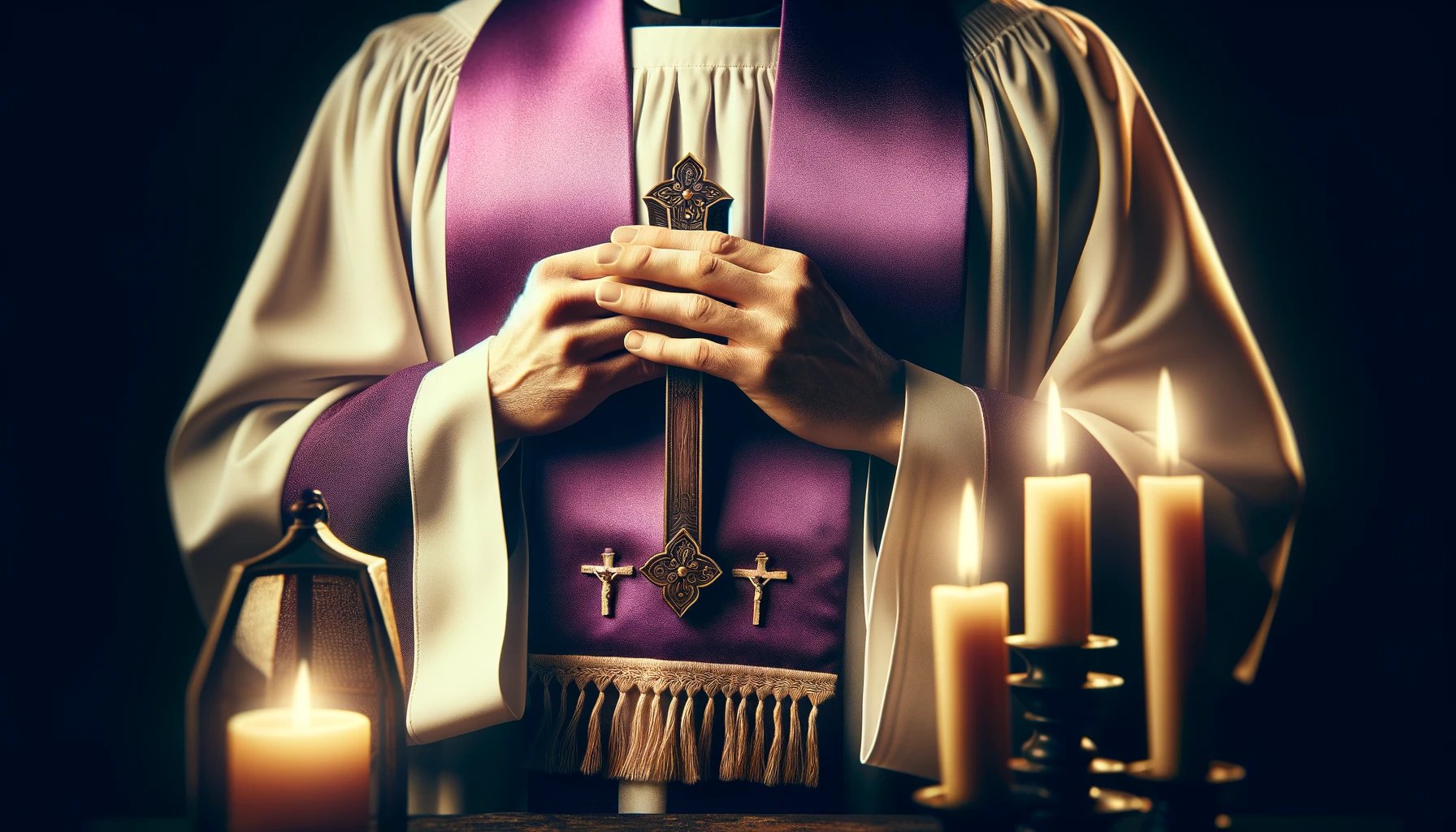Home>Special Themes>What Religions Fast During Lent


Special Themes
What Religions Fast During Lent
Published: February 28, 2024
Peter Smith, Editorial Director at Christian.net, combines deep insights into faith, politics, and culture to lead content creation that resonates widely. Awarded for his contributions to religious discourse, he previously headed a major organization for religious communicators, enhancing dialogue on faith's societal impacts.
Discover what religions fast during Lent and the significance of this special theme in their faith traditions. Learn about the fasting practices of different religions.
(Many of the links in this article redirect to a specific reviewed product. Your purchase of these products through affiliate links helps to generate commission for Christian.net, at no extra cost. Learn more)
Table of Contents
Introduction
What religions fast during Lent? Lent is a significant period of fasting and spiritual reflection for many Christian denominations. It is observed in various ways by different religious traditions, including the Catholic Church, the Orthodox Church, and Protestant denominations. Additionally, some non-Christian religions also have their own fasting practices during the Lenten season. In this article, we will explore the fasting practices of different religions during Lent, shedding light on the diverse ways in which this period is observed across various faith traditions.
Read more: What Are The Rules Of Fasting During Lent
The Catholic Church's Observance of Lent
The Catholic Church's observance of Lent is a solemn and sacred period that begins on Ash Wednesday and concludes on Holy Thursday, leading up to Easter Sunday. During this time, Catholics are called to engage in prayer, fasting, and almsgiving as a means of spiritual preparation for the celebration of the resurrection of Jesus Christ. Fasting during Lent in the Catholic tradition typically involves abstaining from meat on Ash Wednesday and all Fridays throughout the season. Additionally, Catholics are encouraged to practice self-discipline and moderation in their eating habits, with some choosing to give up certain indulgences or luxuries as a form of sacrifice. The Lenten season is also marked by an increased focus on attending church services, participating in the Stations of the Cross, and engaging in acts of charity and compassion towards others. Overall, the Catholic Church's observance of Lent serves as a time of introspection, repentance, and renewal of faith for its members.
- The observance of Lent begins on Ash Wednesday and concludes on Holy Thursday.
- Catholics engage in prayer, fasting, and almsgiving during Lent.
- Fasting involves abstaining from meat on Ash Wednesday and Fridays.
- Self-discipline and moderation in eating habits are encouraged.
- Increased focus on attending church services, participating in the Stations of the Cross, and acts of charity.
The Orthodox Church's Observance of Lent
The Orthodox Church's observance of Lent, also known as Great Lent, is a period of intense spiritual discipline and fasting that precedes the celebration of Easter. Great Lent is a time of repentance, self-examination, and spiritual growth for Orthodox Christians. It begins with Clean Monday, a day of strict fasting and abstinence, and continues for 40 days, mirroring the 40 days Jesus spent in the wilderness. During Great Lent, Orthodox believers are called to abstain from meat, dairy, fish, olive oil, and wine on specific days, with the most stringent fasting occurring during the first week and the final week of Lent. In addition to dietary restrictions, Orthodox Christians are encouraged to increase their attendance at church services, participate in the sacrament of confession, and engage in acts of charity and compassion. The Lenten journey culminates in Holy Week, a time of intense prayer and reflection leading up to the joyous celebration of Christ's resurrection on Easter Sunday.
- Great Lent is a period of intense spiritual discipline and fasting for Orthodox Christians.
- It begins with Clean Monday and lasts for 40 days.
- Believers abstain from meat, dairy, fish, olive oil, and wine on specific days.
- Increased attendance at church services, confession, and acts of charity are encouraged.
- The Lenten journey culminates in Holy Week and the celebration of Easter.
Protestant Denominations and Lenten Fasting
Protestant denominations vary in their observance of Lent and the practice of fasting during this season. While some Protestant churches do not formally recognize Lent, many others, particularly those within the Anglican, Lutheran, Methodist, and Presbyterian traditions, observe Lent as a period of spiritual preparation for Easter. The emphasis on Lenten fasting in Protestant denominations often centers on the idea of self-examination, repentance, and drawing closer to God through acts of discipline and sacrifice.
During Lent, Protestant believers may choose to fast from certain foods, such as meat or sweets, or from certain activities or habits as a way of focusing on their faith and dependence on God. Some Protestant churches also incorporate special worship services, such as Ash Wednesday services and midweek Lenten gatherings, to provide opportunities for communal prayer, reflection, and spiritual growth. Additionally, Lenten study groups and devotional resources are often made available to help individuals deepen their understanding of the significance of the Lenten season and its connection to the life and ministry of Jesus Christ.
- Protestant denominations vary in their observance of Lent and fasting practices.
- Anglican, Lutheran, Methodist, and Presbyterian traditions often observe Lent as a period of spiritual preparation for Easter.
- Emphasis is placed on self-examination, repentance, and drawing closer to God through acts of discipline and sacrifice.
- Believers may choose to fast from certain foods or activities during Lent.
- Special worship services, study groups, and devotional resources are often incorporated into the Lenten observance.
Other Religions and Their Practices During Lent
In addition to the Christian traditions, several other religions also observe fasting and spiritual practices during the Lenten season. These practices vary widely, reflecting the diverse cultural and religious landscapes in which they are rooted. Here are some examples of fasting practices during Lent in other religions:
-
Eastern Orthodox Christianity: In Eastern Orthodox Christianity, the observance of Lent is known as Great Lent, and it is a period of rigorous fasting and spiritual discipline. Believers abstain from meat, dairy, fish, olive oil, and wine on specific days, with the most stringent fasting occurring during the first and final weeks of Lent.
-
Islam: The Islamic calendar includes a month-long period of fasting known as Ramadan. During Ramadan, Muslims abstain from food, drink, smoking, and other physical needs from dawn until sunset. The fast is a time of self-discipline, reflection, and increased devotion to prayer and worship.
-
Judaism: The Jewish observance of fasting is often associated with Yom Kippur, the Day of Atonement. On this holiest day in the Jewish calendar, believers engage in a 25-hour fast, refraining from food and drink as a means of seeking forgiveness and spiritual purification.
-
Hinduism: In Hinduism, fasting is a common spiritual practice and is often associated with specific religious festivals and observances. Fasting may involve abstaining from certain foods or consuming only simple meals, and it is seen as a way to purify the body and mind and to demonstrate devotion to the divine.
-
Buddhism: While Buddhism does not have a specific Lenten season, some Buddhist traditions incorporate periods of fasting and heightened spiritual practice as part of their monastic discipline. These periods may vary depending on the specific tradition and cultural context.
-
Sikhism: In Sikhism, fasting is not a central religious practice, but there are occasions when Sikhs may choose to fast as a means of spiritual devotion and discipline. Fasting may be associated with specific Sikh festivals or personal acts of piety.
These examples illustrate the rich tapestry of fasting practices and spiritual observances that occur across various religious traditions during the Lenten season. While the specific customs and theological significance may differ, the common thread of self-discipline, reflection, and spiritual devotion unites these diverse expressions of faith.
Read more: What To Eat During Lent Fasting?
Conclusion
In conclusion, the Lenten season is a time of profound spiritual significance for many religious traditions, encompassing a period of fasting, self-discipline, and increased devotion to prayer and reflection. From the Catholic Church's observance of Lent with its emphasis on prayer, fasting, and almsgiving, to the Orthodox Church's rigorous fasting practices during Great Lent, and the diverse approaches to Lenten fasting within Protestant denominations, the significance of this season is deeply woven into the fabric of Christian faith. Additionally, the observance of fasting during Lent extends beyond Christianity, with other religions such as Islam, Judaism, Hinduism, Buddhism, and Sikhism also engaging in fasting practices as part of their spiritual disciplines. The diversity of fasting practices during Lent across various religious traditions serves as a testament to the universal human impulse towards self-discipline, spiritual growth, and the pursuit of deeper connection with the divine. As individuals and communities engage in the Lenten observance, the shared commitment to fasting and spiritual reflection serves as a unifying force, fostering a sense of solidarity and common purpose across diverse religious landscapes.














